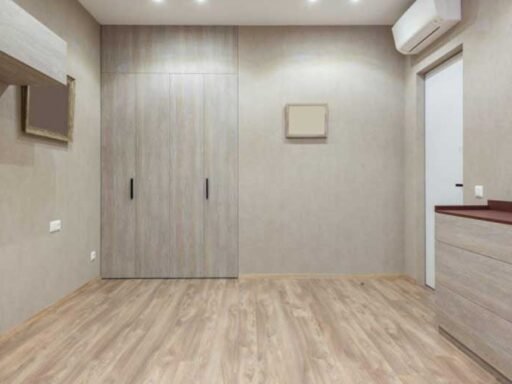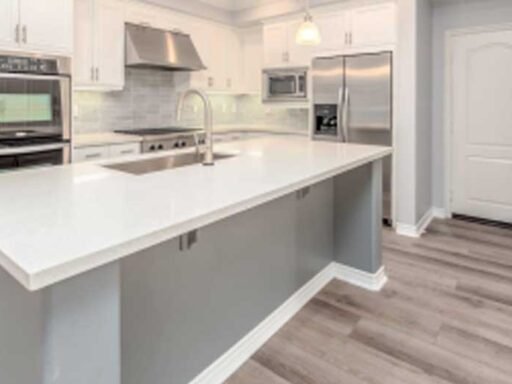Have you ever walked into a room and instantly felt either too hot or too cold? That physical discomfort can quickly affect your mood, focus, and even your well-being. Our homes and workspaces should feel like safe and comfortable spaces, and the right temperature plays a big part in that. Personalized climate control isn’t just about comfort—it can influence how we feel emotionally, how we sleep, and even how we interact with others.
In this blog, we will share how temperature affects your mind and body, why personalized climate control is more than just a luxury, and how modern systems can help you feel your best every day.
How Temperature Affects Mood and Emotions
Temperature plays a major role in shaping our mood. If you’re too hot or too cold, it’s hard to focus or feel relaxed. Research shows that people feel more stressed or irritable when they’re uncomfortable due to temperature. When you’re hot, your body works harder to cool itself down, and that can lead to feelings of frustration. On the flip side, when you’re cold, you might feel sluggish, tired, or even sad.
A space that keeps your body at a comfortable temperature allows your mind to feel calm and settled. It can even affect how you treat others. When people are physically comfortable, they tend to be more patient and understanding. This is especially important in homes with families or in shared workspaces. Personalized temperature settings allow everyone to feel at ease, no matter their comfort preference.
The Power of Control and the Rise of Smart Systems
Having control over your environment is important for your mental well-being. It’s not just about changing a thermostat; it’s about having the power to create the perfect setting for your needs. For many households, a one-size-fits-all temperature doesn’t work. Everyone has different comfort levels. That’s where newer systems come in, like ductless mini-split systems, which allow you to heat or cool specific rooms independently.
These systems are energy-efficient and easy to install. You don’t need to cool the whole house when you’re just using one room. By allowing individuals to set their preferred temperature in each area, these systems reduce tension and promote peace at home. They’re also great for homes with people who have different body temperature needs—like kids, elderly family members, or someone working out in a home gym.
Better Sleep Starts with the Right Climate
Good sleep is one of the most important parts of a healthy life, and room temperature plays a big role. Studies show that cooler rooms help people fall asleep faster and stay asleep longer. If the room is too hot, you may toss and turn, sweat, or wake up feeling groggy. If it’s too cold, your body tenses up, making it harder to relax into deep sleep.
With personalized climate control, you can set your room to the perfect sleep temperature every night. Some systems even allow you to schedule temperature changes, so your room starts cooling down before bed and gently warms up before you wake. This small change can have a big impact on your energy, focus, and mood throughout the day. When your body rests well, your mind follows.
Comfort and Focus in Home Workspaces
With more people working from home, keeping a comfortable work environment has become even more important. If you’re freezing during Zoom meetings or sweating while writing emails, your work will suffer. Your brain uses more energy to deal with the discomfort, leaving less energy for focus and creativity.
Personalized climate control lets you stay in a productive mindset. You can warm up your office without heating the whole house or cool down your space without affecting others. This flexibility leads to better focus, more efficient work, and fewer distractions. Your workspace should support your goals—not work against them. Small changes in temperature can help make big changes in how well you perform each day.
How Temperature Influences Relationships
Temperature affects how we relate to others. When you’re comfortable, you’re more likely to be calm, kind, and open. In shared living spaces, one person’s ideal temperature may be another’s nightmare. Disagreements over the thermostat can cause arguments, especially in families or between roommates.
Personalized systems reduce this conflict by allowing different zones to be controlled independently. Instead of fighting over the temperature in the whole house, each person can create their own comfort zone. This helps everyone feel more respected and at peace. Creating harmony at home starts with recognizing and meeting individual needs—and temperature is one of the easiest ways to do that.
Climate Control and Health Benefits
The right indoor temperature isn’t just about how you feel—it’s also about how your body functions. Cold rooms can lead to stiff muscles, joint pain, or lowered immunity. Warm spaces that are too humid can lead to poor air quality and trigger allergies or asthma. Balanced, personalized climate control helps you avoid these issues.
Smart systems can monitor humidity, temperature, and air quality all at once. This supports better breathing, more stable moods, and fewer health problems. If someone in your household has specific needs, like a newborn baby or an elderly parent, keeping their room at the perfect setting can support their health in a big way. Simple changes to your indoor climate can lead to real improvements in physical and mental well-being.
In conclusion, we often overlook the quiet role temperature plays in our everyday lives. Yet, it affects how we feel, how we sleep, how we work, and how we connect with others. Personalized climate control is more than just about staying warm or cool—it’s about creating a space where you can feel your best. With today’s tools, anyone can take small steps to improve their comfort and support their mental and physical health. Think about how you feel in your own space. A few changes could make a big difference—starting with the temperature around you.






